
by Ashley Bean Thornton
One of my favorite things to do in the world is edit the Act Locally Waco blog. This year the Act Locally Waco blog published 152 posts written by 111 different Wacoans. Topics ran the gamut from prejudice to planting a garden, from frisbee golf to financial planning, from gratitude to graduating from high school – with everything you can imagine in between. The connecting thread is that they all have something to do with these aspirations for Waco that are the driving force behind Act Locally Waco.
December is a wonderful, but hectic, month for most of us so I thought it might be nice to give my beautiful bloggers a month to focus on family, friends and the joys of the holidays rather than on meeting our blog deadlines. So, for the month of December we will have one or two new posts, but mainly we will be reprising “2017’s greatest hits.”
I couldn’t possibly pick my favorites – so I used the simple (cop out?) approach of pulling up the 10 blog posts that got the most “opens” according to our Google Analytics. It is an intriguing collection that gives at least a little insight into the interests and concerns of Act Locally Waco readers. Interestingly, there were a handful of posts from previous years that were still getting as many opens as the newer posts, so included some of those in the list along with the top 10 from this year.
I hope these lists inspire you to go back and re-read your personal favorites. There have been so many terrific ones… but of course they couldn’t all be in the list of the 10 most opened. I would love for you to reply in the comments or on the Facebook page with a note about some of your favorites.
We will be reposting these in the next few weeks between now and the new year — but I know some of you are “list” people who would like to see them all at once. So, I offer the list below, with thanks to everyone who has written for the blog this year, with pride in what we have created together, and with no small amount of wonder at the beautiful complexity that makes up our beloved community! Enjoy!
Think of it as a Christmas present from your community to you, and invitation for you to write in 2018! – ABT
The 10 blog posts written in 2017 that got the most opens this year:
- A letter to my DACAmented friends in Waco by Eloisa Haynes (1,022 opens)
- What does teen dating violence look like? by Berkeley Anderson (807)
- Prejudice then and now…by Ashley Bean Thornton (766)
- Fighting a Monster of our Own Creation by Andre’ Watkins (743)
- God, Gender and Shortcuts by Leslie King (641)
- Four Things I Wish I Had Known in High School by Kassidy Munden (640)
- What the research tells us about how to help your kids do well at school by Jon M. Engelhardt (475)
- Communities of Waco: King’s Landing by Rebecca Melton Mercer (446)
- Changing The Community, One Mentor At A Time by Stephanie Korteweg (432)
- Stop the Bleeding by Mike Stone (385)
A few posts from previous years that got quite a few opens in 2017…
- Where are Waco’s public pools? by Rachel Lynne Wilkerson, 2016 (745)
- Why should we care about housing and homelessness? by Phil York, 2013 (699)
- My Story of Homelessness, Hope, and a Mustard Seed by Destiny Fernandez, 2016 (555)
- What about people who “Just don’t want to work…” by Ashley Bean Thornton, 2015 (523)
- Entrepreneurs of Waco: Black Oak Art by Shannon Lesko, 2016 (495)
 This Act Locally Waco blog post is by Ashley Bean Thornton, she has lived in Waco almost 20 years now. Far longer than she ever lived anywhere else. She likes to walk. If you see her out walking, honk and wave and say “hi!”
This Act Locally Waco blog post is by Ashley Bean Thornton, she has lived in Waco almost 20 years now. Far longer than she ever lived anywhere else. She likes to walk. If you see her out walking, honk and wave and say “hi!”
The Act Locally Waco blog publishes posts with a connection to these aspirations for Waco. If you are interested in writing for the Act Locally Waco Blog, please email [email protected] for more information.
(During December we will be reprising some of “2017’s greatest hits” from the Act Locally Waco blog. I couldn’t possibly pick my favorites – so I used the simple (cop out?) approach of pulling up the 10 blog posts that got the most “opens” according to our Google Analytics. It is an intriguing collection that gives at least a little insight into the interests and concerns of Act Locally Waco readers. I hope this “Top 10” idea inspires you to go back and re-read your personal favorites. There have been so many terrific ones… If you would like to see the Top 10 according to Google Analytics, here’s the link: 2017 Greatest Hits. Merry Christmas! — ABT)
By Eloisa Haynes
What a hard week this has been for you and everyone who loves you. I am grieved at the uncertainty that you and your family face now that President Trump has decided to terminate the Obama-era Deferred Action for Childhood Arrivals (DACA) program. We all knew that DACA was the equivalent of receiving a band-aid for a shotgun wound—but we rejoiced over the band-aid. It opened the opportunity for you and many others to obtain a driver’s license and enter the workforce. It allowed you to come out of the shadows and not be afraid for the first time. It opened the door to achieve the American dream. It gave us all hope.
As a formerly undocumented immigrant, who remains in this country by the sheer will and grace of God, I know what it is to live in fear and isolation. I feel compelled to acknowledge and validate your pain. Those who know little about the brokenness of our immigration system will likely downplay the severity of your situation in hopes to cheer you up. Those of us who have been entangled in the immigration system know better and are keenly aware that you and your loved ones are in a perilous situation.
It is right and proper to cry, to feel despair, to experience anger and hopelessness – but only briefly. You and I do not have the privilege to curl into a ball and hide, or to roll over and die. Our parents sacrificed everything that makes life worth living to give us a chance for a better life. We cannot fail them. Being undocumented puts individuals like us in a vulnerable position. We carry around the stigma of illegality. We isolate ourselves and at times keep our neighbors at arm’s length in order to protect ourselves. To conceal our immigration situation, we allow the media and politicians to drive the narrative about who we are. But we cannot afford to live that way any longer.
Let me remind you that DACA did not come about because President Obama was a kind-hearted, compassionate politician. No – it happened because brave young men and women like you shared their stories and demonstrated that our hearts beat for America. Others who have come before you stuck out their necks and risked everything. If there is any compassion for Dreamers in the current political climate, it is because Dreamers like you have fought the good fight for the right to belong in this great nation.
Ecclesiastes 3:7 tells us that “there is a time to be silent and a time to speak.” I believe this is the time to speak. What do you have to lose? You have been stripped of everything – except for the love you have for Waco and the United States. This is the time to reach out to your neighbors, co-workers, teachers, professors and friends. Come out and tell them your story. Let your story shed light. Let your story stand as a contrast to the narrative our neighbors and friends hear from the media day in and day out. Let your pastor and your coach meet a Dreamer – come out and claim your place in our great community. They already love you and care about you. If their political views say otherwise, it is only because you and I have failed to bring our humanity into this political conversation. We are not pawns. We are productive members of our community – we are nurses, students, business owners, parents, church leaders… It is time to speak.
If you are a Dreamer and would like a community of friends in these difficult times, reach out to the Waco Immigrants Alliance. In this political climate where it feels like the rain keeps coming and it is up to our necks, our goal is to ensure no immigrant in our community treads the water alone. But we will not just tread beside you – we will sing. We will raise our voices together, to sing the songs that tell our collective story for all the world to hear. Our story is our battle cry. It is our greatest weapon of peaceful revolution. Jesus Christ taught the greatest lessons in parables, revealing the power that a story holds in our heart. So together, we will sing and share and cry and rejoice, until all our lives no longer exist “in the shadows,” and our national policies respect the God-given dignity and worth of all immigrant lives. And with each victory, big or small, we will give thanks with una danza alegre. (Ps. 30:11-12).
 Eloisa Haynes is a wife and mother of U.S. citizens, yet she is still entangled in the broken immigration system. To her, Waco is a special community – the place where she first met Jesus, started a family and found friends who have supported and encouraged her. She is proud to call Waco her home and believes that everything she has accomplished, the Lord has done for her (Isaiah 26:12). She works in higher education and volunteers as a community organizer.
Eloisa Haynes is a wife and mother of U.S. citizens, yet she is still entangled in the broken immigration system. To her, Waco is a special community – the place where she first met Jesus, started a family and found friends who have supported and encouraged her. She is proud to call Waco her home and believes that everything she has accomplished, the Lord has done for her (Isaiah 26:12). She works in higher education and volunteers as a community organizer.
(During December we will be reprising some of “2017’s greatest hits” from the Act Locally Waco blog. I couldn’t possibly pick my favorites – so I used the simple (cop out?) approach of pulling up the 10 blog posts that got the most “opens” according to our Google Analytics. It is an intriguing collection that gives at least a little insight into the interests and concerns of Act Locally Waco readers. I hope this “Top 10” idea inspires you to go back and re-read your personal favorites. There have been so many terrific ones… If you would like to see the Top 10 according to Google Analytics, here’s the link: 2017 Greatest Hits. Merry Christmas! — ABT)
By Kassidy Munden
After my first year of college, I began to realize there were things I really (and I mean really) wish I had known in high school to help make my transition to college smoother.
The first thing I would advise any high schooler would be to take the high school anatomy class. I didn’t think I would ever need anatomy in my future profession, or even have to take it in college, but I could not have been more wrong about that. High school students considering going to college should seriously consider taking an anatomy class. My biggest regret about not taking anatomy in high school was that when I got to college, I was far behind my classmates and didn’t know a single thing. You can imagine how well a 100-question test over blood flow in the body went for me three weeks into my freshman year.
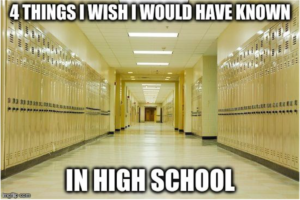 The second thing I would recommend for any high schooler would be to take dual credit in high school. Looking back on high school, that had to be one of the best educational decisions I made to prepare for college. Thanks to dual credit, I had all of my core English classes completed by the time I began college. Not only was it one less major class I had to take, I also learned how to properly write college papers. This helped me in my other classes as well, because in every class, even math, I had to write some type of proper essay. Knowing how to format and write these essays before my freshman year paid off in a huge way. I wish I had known to take more of the dual credit classes my high school offered, because even though they seemed difficult, they were more rewarding in the long run than they seemed at the time.
The second thing I would recommend for any high schooler would be to take dual credit in high school. Looking back on high school, that had to be one of the best educational decisions I made to prepare for college. Thanks to dual credit, I had all of my core English classes completed by the time I began college. Not only was it one less major class I had to take, I also learned how to properly write college papers. This helped me in my other classes as well, because in every class, even math, I had to write some type of proper essay. Knowing how to format and write these essays before my freshman year paid off in a huge way. I wish I had known to take more of the dual credit classes my high school offered, because even though they seemed difficult, they were more rewarding in the long run than they seemed at the time.
The third thing I wish I had known was to take the college transition class offered. Most high schools offer a college transition class and extend the class to all seniors. I did take this class, but I wish I had taken it more seriously. This class teaches students about life in college and how to live on your own, as well as educational enhancements such as how to build a resume. Looking back now, I wish I had learned how to build a proper resume, because that is something I will need for anything and everything. Most freshmen take classes requiring them to build a resume of some sort, and trust me, learning about it in detail in high school is easier than trying to learn it on your own in college.
The fourth and final thing I wish I had known was to get a job or internship. Most high school students declare their major “undecided” when entering their freshman year of college, which is completely normal. However, I wish I had explored more job opportunities and taken internships. These not only look great on a resume but also help you develop an idea of what you might actually want to get a degree in. Having more of a background in several different positions makes you a more diverse and knowledgeable individual. Did I mention it also will give you a stronger resume when you apply for college? That is key for all aspiring college students.
High school is a profound experience-building time for everyone, and I highly recommend that college-bound students seek out all of the opportunities available, because they definitely will pay off in the long run.
 Kassidy Munden is a summer intern at ESC Region 12 in the College and Career Readiness/CTE department. She is a student at Texas Tech University and wanted to share her wisdom with current high school students.
Kassidy Munden is a summer intern at ESC Region 12 in the College and Career Readiness/CTE department. She is a student at Texas Tech University and wanted to share her wisdom with current high school students.
(During December we will be reprising some of “2017’s greatest hits” from the Act Locally Waco blog. I couldn’t possibly pick my favorites – so I used the simple (cop out?) approach of pulling up the 10 blog posts that got the most “opens” according to our Google Analytics. It is an intriguing collection that gives at least a little insight into the interests and concerns of Act Locally Waco readers. I hope this “Top 10” idea inspires you to go back and re-read your personal favorites. There have been so many terrific ones… If you would like to see the Top 10 according to Google Analytics, here’s the link: 2017 Greatest Hits. Merry Christmas! — ABT)
By Andre’ Watkins
Growing up in Waco, Texas, gives you a certain kind of insight. Waco is a mid-sized community that allows its citizens the distinct opportunity to experience all of the levels of socioeconomic strata with ease. Just take a ride down Colcord Ave. You will see the homes of the very affluent and the homes of the desolately hopeless on the same block. This is my Waco.
This Waco has a long history. During the 60’s and 70’s, Waco participated in a federal program called “Urban Renewal” meant to improve blighted areas of town. Under this program (called “Urban Removal” by those who questioned its value) entire family units were removed from neighborhoods where they had built and maintained homes and raised families. Those who remained were expected to pull themselves up by their proverbial bootstraps, which proved to be a difficult task.
Around the mid-eighties, crack cocaine ripped through my beloved city on a euphoric rampage. Crack took from the rich and poor alike. This gruesome drug fueled demon was never a black or white problem. It was a drug addiction problem.
Crack cocaine changed the landscape of Waco. Middle-class families fled to the suburbs. Neighborhood stores closed. Restaurants and grocery retailers were boarded up. This left a power vacuum in the inner city of Waco that attracted crime and despair.
A chasm opened up between the people who left and the often impoverished people who remained. Waco ISD finds itself in the position of needing to bridge this chasm. To bridge this chasm we have to be honest with ourselves: very often there is a serious disconnect between the community we serve as a school district and the service providers that work in our schools.
To address this situation we have to deal with some hard questions: How do we expect people to model their behavior after the behavior of those who left them to languish in lack? Why should I as an impoverished person seek to exemplify a lifestyle of a person or people who won’t even come to my neighborhood? Do you really care about me? Or am I a charity case or pet project?
Realizing this disconnect, we knew that we had to switch up the flow. To combat this monster of our own creation, we began to search for methods that other school districts were utilizing successfully.
Restorative Discipline just seemed to jump off of the pages of training manuals and speak directly to the heart of our issues here in Waco ISD.
To quote from the website of Life Anew, a non-profit in Austin that brings restorative practices into local community schools, “Restorative processes create a space where students and adults can develop empathy, respect and common values by listening and learning from one another. This process helps to increase the effectiveness of instruction time, build community and develop students socially and emotionally.”
At the heart of Restorative Discipline Practices, we find a tradition as ancient as the campfire circles of old, the Intentional Conversation. Intentional Conversations are simply focused discussions that seek to determine the root cause of an exhibited behavior.
We acknowledge the truth in the statement made by Sherwynn Patton, Executive Director of Life Anew, “Adverse behavior is just the smoke; when we find the reasons for the behavior, we locate the source, the fire.” We had been spending too much time putting the waters of our logic and education on the smoke. We never dug deep enough with our conversation skills and listening hearts to determine the location of the fires in our precious students’ souls.
As we began to have Intentional Conversations together as staff at Waco High, we began to seek and find our similarities as PEOPLE and to break down our cultural bias. We then began to spread this infection of emotional affection for the staff through the students into our community. Waco High dropped its rate of suspension by 46% in two years of Restorative Practices implementation. I don’t care who you are or where you are from – That is impressive! We celebrate and invite our community at large to join us in repairing harm and establishing community unity.
 Andre’ E. Watkins is a Restorative Discipline Facilitator at Waco High School. He has 16 years of experience working with at risk youth and their families including serving as Detention Supervisor at Bill Logue Juvenile Justice Center and a Training Officer at McLennan County Challenge Academy. He was a Dorm Supervisor at TYC Mart, and is the only person in the State of Texas to be promoted from JCO 1 to JCO 5 in 30 days. He volunteers at the Doris Miller YMCA, as a Prosper Waco Community Engagement Committee Member and as a Football and Basketball Coach for the Waco Eagles. He is also a Park Ranger for the City of Waco.
Andre’ E. Watkins is a Restorative Discipline Facilitator at Waco High School. He has 16 years of experience working with at risk youth and their families including serving as Detention Supervisor at Bill Logue Juvenile Justice Center and a Training Officer at McLennan County Challenge Academy. He was a Dorm Supervisor at TYC Mart, and is the only person in the State of Texas to be promoted from JCO 1 to JCO 5 in 30 days. He volunteers at the Doris Miller YMCA, as a Prosper Waco Community Engagement Committee Member and as a Football and Basketball Coach for the Waco Eagles. He is also a Park Ranger for the City of Waco.
The Act Locally Waco blog publishes posts with a connection to these aspirations for Waco. If you are interested in writing for the Act Locally Waco Blog, please email [email protected] for more information.
(During December we will be reprising some of “2017’s greatest hits” from the Act Locally Waco blog. I couldn’t possibly pick my favorites – so I used the simple (cop out?) approach of pulling up the 10 blog posts that got the most “opens” according to our Google Analytics. It is an intriguing collection that gives at least a little insight into the interests and concerns of Act Locally Waco readers. I hope this “Top 10” idea inspires you to go back and re-read your personal favorites. There have been so many terrific ones… If you would like to see the Top 10 according to Google Analytics, here’s the link: 2017 Greatest Hits. Merry Christmas! — ABT)
By Jon M. Engelhardt, Ph.D.
Most parents want desperately to see that their children do well in school — and in life. And we know from research, and general observation, that one key to realizing the “American dream” is a good education. But a good education depends upon more than what schools and teachers do — much more. It starts with what parents, families and perhaps others in a child’s life do to help prepare that child for school. It includes both having faith in the child as well as trust in their teachers and school. Children are always learning, but what they are learning and how that learning is shaped can be critical for school success.
For a number of years I had the honor of serving as a School of Education Dean at four universities, most recently at Baylor University. A few years ago, I asked the Education faculty at Baylor what research-supported suggestions we might share with parents/grandparents to help them “promote positive school outcomes” for their children.
Based upon that input, listed here are nine things (in no particular order except the first one) that research unquestionably tells us parents can and should do to help their children be prepared for success in school. While there is much that can be said about each of these, the kernel of each idea is presented here for consideration.
1. Read! Read! Read! – The single most powerful thing parents can do to help their children (especially ages 3 to 8) get a strong education is to have plenty of reading materials in the home. Books, magazines, newspapers…read all these kinds of things yourself regularly while your child is watching. Read to your child and discuss what you are reading with him/her. Reading to your child and showing your child that you read can have a tremendously positive effect on your child’s language and vocabulary development, reading achievement and school outcomes generally (grades and graduation). This kind of exposure to reading even seems to predict eventual college completion.
Other important things we know from research that parents should consider are:
2. Pre-school matters. – Children who participate in quality early (pre-school) education are more likely in later life to be consistently employed and are 4 times more likely to earn a college degree.
3. Get out the blocks and build with your child. – Playing with blocks at an early age promotes language and social-emotional development and has a positive impact on a child’s math learning. You can use blocks to practice basic kindergarten-entry math skills, like meaning for numbers (one, two, three. etc.) and order (first, second, etc.). Simple projects can pack in a lot of learning. For example, build a tower with blocks of different colors, sizes and shapes and then have your child build a tower that looks just like yours. This helps little ones learn how to analyze things visually and notice differences and similarities. Learning these concepts and skills at an early age is a powerful predictor of later math learning in school. Blocks are a great way to help your child grasp crucial early math concepts. The seeds you are planting during those hours spent on the floor playing with blocks take a while to grow. The benefits of this early learning with blocks sometimes becomes most noticeable in high school.
4. Educate yourself about parenting. – Parents of 3 to 6-year-olds, who read about parenting, are better able to cope with child behavior problems and feel greater confidence and satisfaction with their parenting efforts.
5. Out of school programs make a difference IN school. – Afterschool and summer programs, clubs, and enrichment activities that encourage reading and writing activities make a difference. Children who participate in these kinds of activities 3-4 times a week experience broad and positive impact on their reading (drawing conclusions, spelling, identifying main ideas) as well as on their writing and speaking skills. This is especially true for younger children who are behind academically. Children participating in afterschool/summer programs that focus on math, science or robotics demonstrate positive attitudes about math and science (especially during intermediate school and above) and have higher high school graduation rates. Furthermore, out-of-school programs and experiences that involve similar content to what the child is learning in school make it more likely that the student will participate in the classroom. This enhances the student’s achievement and outcomes
6. Talk to your child. Use lots of words. –Very young children (ages 1-3) who get to talk regularly with adults who have good language skills and who use a wide variety of words have a profound advantage when it comes to success in school. This is especially important for their reading achievement. Vocabulary level when a child starts school is a powerful predictor of school success. The more words a child can use and understand in conversation when she starts school, they more likely she is to be a success in school.
7. Learn things together as a family. – For children at all ages, their involvement with family and community in learning activities of most any sort makes a difference in student success in school (and beyond).
8. Get out and explore the world together. – Spending at least 15 minutes per day outdoors examining their world (at least sometimes with a parent/adult caregiver) promotes children’s curiosity and creative thinking as well as positively impacts their science education.
9. Teach your child that being good at school takes work not luck. – Praising children for their schoolwork outcomes in ways that focus on effort, rather than on “in-born” traits like intelligence has long-term positive impact on their future school success. For example, comments like “You are so smart, you always make good grades” or “You are just bad at math, that’s OK, I was bad at math too,” teach children that their chance of being successful in school is out of their hands. Praise like “You really stuck with that and you figured it out. Good for you!” when a child tackles a difficult problem or “You studied and it paid off!” when a child has worked hard, help the child understand that their learning is in their hands and that if they work at something they can usually master it. Children who understand the learning takes work and that by working hard at something they can usually learn it, are more likely to succeed in school in the long run.
 Jon Engelhardt is a retired Dean of Education at Baylor University. He served as co-chair of the Prosper Waco Education Steering Committee and continues to work with the various education related working groups associated with that initiative. Before coming to Baylor he served as Dean are UT El Paso, Wichita State, Northern AZ University. Before that he was department chair and associate dean at Arizona State.
Jon Engelhardt is a retired Dean of Education at Baylor University. He served as co-chair of the Prosper Waco Education Steering Committee and continues to work with the various education related working groups associated with that initiative. Before coming to Baylor he served as Dean are UT El Paso, Wichita State, Northern AZ University. Before that he was department chair and associate dean at Arizona State.
(During December we will be reprising some of “2017’s greatest hits” from the Act Locally Waco blog. I couldn’t possibly pick my favorites – so I used the simple (cop out?) approach of pulling up the 10 blog posts that got the most “opens” according to our Google Analytics. It is an intriguing collection that gives at least a little insight into the interests and concerns of Act Locally Waco readers. I hope this “Top 10” idea inspires you to go back and re-read your personal favorites. There have been so many terrific ones… If you would like to see the Top 10 according to Google Analytics, here’s the link: 2017 Greatest Hits. Merry Christmas! — ABT)
by Ashley Bean Thornton
I have a cloudy memory from when I was very young, six or seven years old at the oldest, maybe even as young as four or five. I was born in 1961, so this would have been sometime between 1966 and 1968, I guess.
Some adult in my life, a woman, sat me down and explained to me why, according to the Bible, black people were meant to be subservient to white people. I don’t remember who gave me this lesson. I think it was at my grandmother’s house, but I don’t think it was my grandmother. It might have been an aunt or maybe just one of my grandmother’s friends. It doesn’t really matter. Plenty of people would have told me the same story.
The explanation had to do with Noah after the flood. Noah had gotten drunk and was lying naked in his tent. One of his sons, Ham, saw his father in this sorry state and reported it to his brothers. When Noah found out about this, he cursed Ham saying that Ham’s offspring should always be slaves to his brother’s children. So, Ham’s children became black people and the brothers’ children became white people and that is why black people were always meant to be subservient to white people.
Nowadays I’m sure every white person I know would cringe at hearing this story. I imagine most of my friends find it downright offensive. I hope they do. It’s a terrible story. I’m ashamed to even tell it.
The reason I am telling it is because I have thought of it often these last few years as I have watched gay people gain more and more rights and have observed the strong resistance to that progress. I thought of it this morning as I read that two years after the Supreme Court ruled that same sex couples have a constitutional right to marry, gay people still cannot get a courthouse wedding in Waco.
You may be thinking that the woman who sat me down and told me the story of Noah and Ham and black people must have been some kind of mean, ignorant, “white trash,” low-class person. Even though I can’t remember exactly who she was, I can tell you that was not the case. Any adult woman I would have met at my grandmother’s house would have been cut from basically the same cloth as my grandmother: hardworking, educated, church-going, white women who had all endured some hard times, and who, despite that, liked to laugh, tell stories, watch Laurence Welk and talk behind each other’s backs about who had the best pound cake recipe.
In other words, I imagine the woman who tried to pass her racial prejudice on to me was a good person by most every measure. I believe she took the time to make sure a small girl understood the lesson about Noah and Ham because she believed the story was true and that it was right and important to pass it on to me.
In the same way, I think that many people who oppose gay marriage and other gay rights believe very deeply that they are correct in their opposition. They believe God’s word is clear. They believe it viscerally. They feel all the way down to their bones that they are right.
This story from my own childhood reminds me that at one time, not so long ago, many otherwise decent people felt the same way about racial segregation and opposing the civil rights of black people. You can see it in the angry faces of the white people in the pictures of the mob scenes when schools were being integrated or black people were marching for their rights. I have heard it in angry words coming out of the mouths of my own family members. These white people who opposed civil rights for black people believed they were right. Being told they were wrong caused a kind of outrage on two fronts. On one front, they were outraged because black people were demanding to “rise above their rank” and were “disrupting the natural order of things.” On the other front, they were outraged because other people, black and white, were judging them for standing up for what they believed was right.
They felt viscerally, to their bones, that they were right.
But, they were wrong.
Thanks to legislated integration, my grandmother, by the time she retired, had taught many African-American second graders and worked with at least a handful of African-American teachers. She realized, at least partly, that she had been wrong about black people. Her attitude changed. Not as much as it should have, perhaps, but it changed some. My mother’s attitude has changed even more. Mine has changed even more. We’ve changed enough that I feel ashamed of a story that at one time was accepted and defended among my kin as “what the Bible says.”
I believe a generation from now we straight people will feel just as ashamed at having tried to deny gay people the right to marry as we white people feel now at having tried to deny black people the right to vote and to be treated equally and fairly.
I’m not sure what I would have done if I had been born in my grandmother’s generation or my mother’s generation instead of my own. I don’t know if I would have recognized the way black people were treated as being wrong, or if I would have gone along with the prevailing beliefs of most white people in the South at the time. But, living here and now, and having learned from that example, I will say that I would be proud for gay people to be able to get married in our courthouse in Waco. I am sorry that we have not reached that point already. I hope we get there soon.
 This Act Locally Waco blog post is by Ashley Bean Thornton, she has lived in Waco almost 20 years now. Far longer than she ever lived anywhere else. She likes to walk. If you see her out walking, honk and wave and say “hi!”
This Act Locally Waco blog post is by Ashley Bean Thornton, she has lived in Waco almost 20 years now. Far longer than she ever lived anywhere else. She likes to walk. If you see her out walking, honk and wave and say “hi!”
The Act Locally Waco blog publishes posts with a connection to these aspirations for Waco. If you are interested in writing for the Act Locally Waco Blog, please email [email protected] for more information.
(During December we will be reprising some of “2017’s greatest hits” from the Act Locally Waco blog. I couldn’t possibly pick my favorites – so I used the simple (cop out?) approach of pulling up the 10 blog posts that got the most “opens” according to our Google Analytics. It is an intriguing collection that gives at least a little insight into the interests and concerns of Act Locally Waco readers. I hope this “Top 10” idea inspires you to go back and re-read your personal favorites. There have been so many terrific ones… If you would like to see the Top 10 according to Google Analytics, here’s the link: 2017 Greatest Hits. Merry Christmas! — ABT)
By Mike Stone
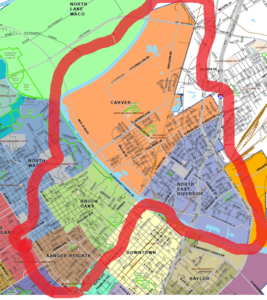 Waco, we have a problem. A recent Trib article (Waco Economy Staggers Despite Promising Signs) highlighted the residential construction boom our city is experiencing, and the surging price of homes due to all of the newly constructed and remodeled homes being built. It is an accurate claim resulting from numerous factors, all of which benefit our city. However, when examining residential construction data for the neighborhoods surrounding downtown we see the opposite.
Waco, we have a problem. A recent Trib article (Waco Economy Staggers Despite Promising Signs) highlighted the residential construction boom our city is experiencing, and the surging price of homes due to all of the newly constructed and remodeled homes being built. It is an accurate claim resulting from numerous factors, all of which benefit our city. However, when examining residential construction data for the neighborhoods surrounding downtown we see the opposite.
The Brook Oaks, Carver, Northeast Riverside, and Sanger Heights neighborhoods all possess a long history of strong people, traditions and homes that have shaped the core of our city. It is a core that’s bleeding, because in the past decade we have lost more homes than have been built. As a result, the people power and economic power of these communities lessen.
THE NUMBERS
According to the last ten years’ worth of data from the City of Waco Permits Department, there have been 334 residential demolitions in these neighborhoods but only 118 new homes permitted. This is in spite of the efforts of numerous Wacoans who have chosen to build homes; private developments such as Cameron Heights; and the work of local non-profit home builders, including Waco Community Development, Waco Habitat and Neighborworks Waco.
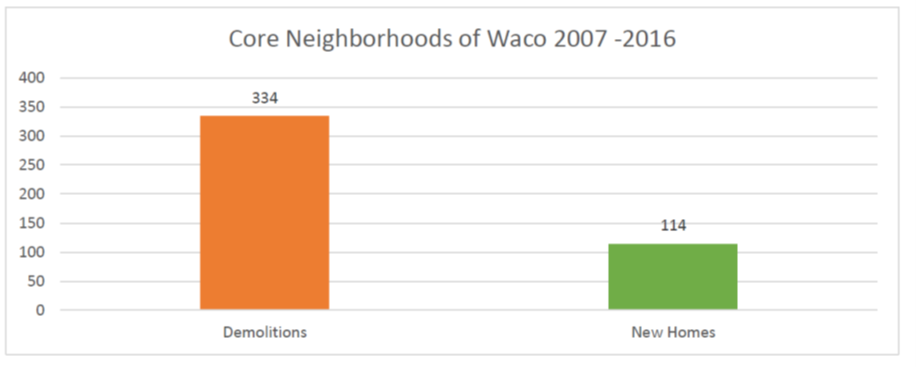
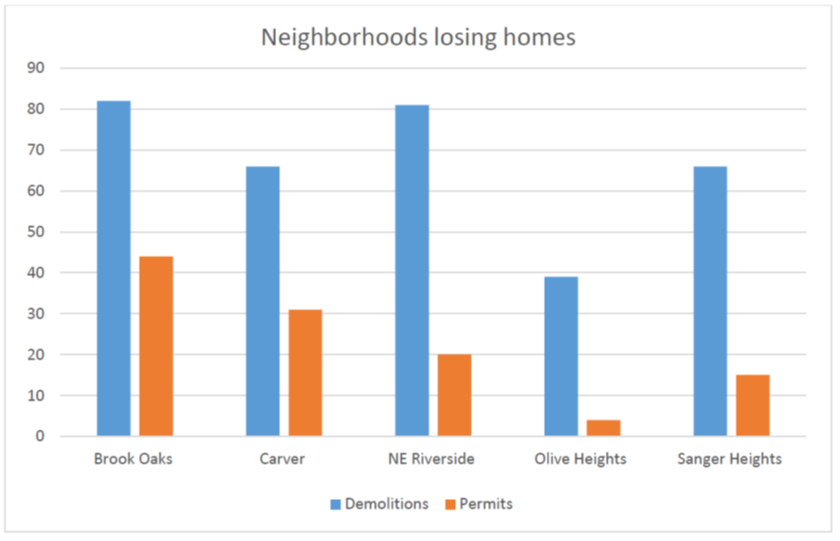
THE PROBLEM
 There is a myriad of reasons for the demolition of homes in the past decade. They include faulty wiring, poor maintenance, fallen trees, and fires. Just next to our office, we lost a 90 year old home due to lightning. The house was hit twice igniting the insulation and destroying the house within minutes.
There is a myriad of reasons for the demolition of homes in the past decade. They include faulty wiring, poor maintenance, fallen trees, and fires. Just next to our office, we lost a 90 year old home due to lightning. The house was hit twice igniting the insulation and destroying the house within minutes.
Losing homes from these neighborhoods will continue as the homes age, but the real problem is the low volume of newly constructed of homes in these areas. We need more homes built to stop the bleeding.
A SOLUTION
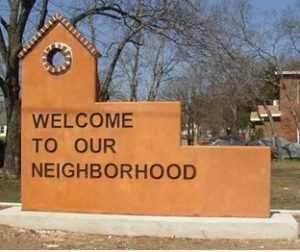 New construction is occurring in concentrated areas of new subdivisions but the growth is on the west side of town far from these core neighborhoods. This strategy of concentrated construction works well for the builders and the buyers because it gives numerous options to create a home within a community.
New construction is occurring in concentrated areas of new subdivisions but the growth is on the west side of town far from these core neighborhoods. This strategy of concentrated construction works well for the builders and the buyers because it gives numerous options to create a home within a community.
A similar strategy has been used in the Brook Oaks neighborhood. Over the past 15 years, the community has experienced a focused effort by numerous builders to construct homes in a targeted area. These efforts were able to effectively slow and almost stop the bleeding within this core of the city neighborhood as shown in the chart below.
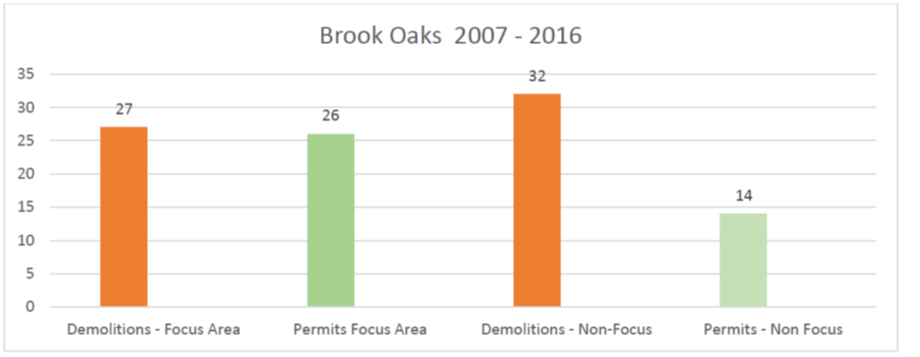
In the focus area of Brook Oaks, twenty-six homes were built to replace the 27 homes that were demolished. As opposed to the non-focus area of Brook Oaks where only fourteen homes were built to replace 32 homes that were demolished.
The City of Waco has continued to combat this bleeding with funds from The Federal HUD program. Many of the homes built in the focus area were the result of this investment. A concern is if the current budget proposals from Washington D.C. are followed, this effort will be dramatically curtailed and the bleeding will increase. The current federal budget proposals include major cuts to these HUD programs.
THE CHARGE
We need more homes being built and we need creative solutions to help encourage more new construction in these neighborhoods. How do we entice other builders to build in these core neighborhoods? How do we expand the work the non-profit builders are doing? How do we entice more families to buy more homes in core of the city neighborhood? How do we stop the bleeding?
Waco, we have been tasked with making sure the core neighborhoods of our city thrive. It is my belief that this can be done though a collective effort to build homes in one focus area at a time. Let us band together to stop the bleeding. Let us go help somebody!
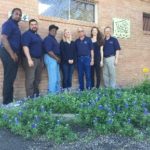 Mike Stone has been the Executive Director of Waco Community Development since November of 2012. Waco Community Development has built 57 new homes in Waco and remodeled 19 homes in their efforts to inspire and cultivate healthy neighborhoods. When not working, you won’t find him, as he will be in the woods somewhere that cell phones don’t work.
Mike Stone has been the Executive Director of Waco Community Development since November of 2012. Waco Community Development has built 57 new homes in Waco and remodeled 19 homes in their efforts to inspire and cultivate healthy neighborhoods. When not working, you won’t find him, as he will be in the woods somewhere that cell phones don’t work.
(During December we will be reprising some of “2017’s greatest hits” from the Act Locally Waco blog. I couldn’t possibly pick my favorites – so I used the simple (cop out?) approach of pulling up the 10 blog posts that got the most “opens” according to our Google Analytics. It is an intriguing collection that gives at least a little insight into the interests and concerns of Act Locally Waco readers. I hope this “Top 10” idea inspires you to go back and re-read your personal favorites. There have been so many terrific ones… If you would like to see the Top 10 according to Google Analytics, here’s the link: 2017 Greatest Hits. Merry Christmas! — ABT)
By Berkeley Anderson
I was involved in every possible extracurricular from mock trial to tennis. I had high grades and graduated in the top of my class. My parents demonstrated respectful and kind relationship behaviors. Despite those things, I experienced dating abuse in different forms.
Dating violence is a pattern of harmful behavior in which one partner attempts to exert power and control over the other partner. Most people immediately think of physical and sexual abuse, but dating violence also includes less visible forms of damaging behavior including verbal/emotional abuse, digital abuse, and stalking. At its most extreme dating violence may look like the death of an all-star college lacrosse player, but in others forms it can be even harder to recognize, especially for teens who are new to dating.
Complicating matters further, relationship behaviors exist along a spectrum. Healthy partners have open, respectful communication about conflicts, respect for each other and respect for boundaries. Unhealthy behaviors signal that the relationship has problems—ranging from lack of communication to incompatibility. Some examples of unhealthy behavior include texting or calling more than the other person is comfortable with, getting jealous when the other person spends time with friends or alone, and dishonest or non-existent communication.
Most relationships exhibit unhealthy behaviors at some point. They may stem from one partner’s insecurities or poor communication. Additionally, some behaviors indicate that the relationship is heading toward being abusive or is already abusive. Physical violence, for example, is never okay. But where do we draw a line with insults, teasing, or manipulation?
My relationships didn’t have all of the signs you might see on a list of warnings about abusive relationships. There was extreme jealousy—but I believed that it was partially my fault when my ex pushed a male friend after he hugged me. There was also yelling when he was angry, but again I thought that some of this was a normal response to being angry. Then there were the times that he got so upset that he harmed himself—and I thought, well, it wasn’t me, this is scary but not violence toward me. What I didn’t know at the time is that these behaviors are about power and control. They scared me, and in the long run made me averse to conflict.
Then he pushed me.
Not hard enough to really hurt me, but enough that I was scared. It was so long ago that I can remember the emotions, but not the context. All I can remember is that when I told my parents, they said he needs to seek therapy or you need to break up. When I told him, he said I’d broken his trust.
So you might ask, why didn’t other people know? Why didn’t my parents say something sooner?
The fact of the matter is that I never felt like I needed to tell someone even though it was an emotionally damaging relationship. I didn’t tell my parents because I wanted to stay with him. I only talked about the good things most of the time. And there were many good things. By the time there were more than enough unhealthy behaviors, I had redefined what a normal relationship looked like.
Which behaviors were problematic?
- Extreme jealousy
- Extreme mood swings
- Yelling when upset/getting angry over small things
- Self-harm
- Physical violence
- Accusing a partner of “breaking confidence” about unhealthy behaviors
Many of the things on this list —and this list is not comprehensive—were not what I thought of as abusive at the time. I didn’t completely understand what I was going through. By the time there were more than enough unhealthy behaviors to define the relationship as abusive, I had redefined what a normal relationship looked like. And I was wrong. Teen dating abuse is neither healthy nor “normal.”
So why talk about this now?
February is National Teen Dating Violence Awareness month. It’s a time when parents, schools, and organizations across the country learn how to talk about and prevent teen dating violence. Dating violence affects 1 out of 3 teens on average. If you haven’t experienced teen dating violence, you probably know someone who has.
How can you prevent this from happening to yourself or to teens you are close with?
- Educate yourself and others on what teen dating violence looks like.
- Learn to have those uncomfortable conversations about healthy and unhealthy relationships.
- Define your boundaries and how you want to be treated. In a healthy relationship, your partner should respect your boundaries and should respect how you want to be treated.
- If you think a friend or family member is experiencing abuse, do not judge them for staying with their partner, instead provide them with resources and options.
If you suspect your relationship is becoming abusive, trust your instincts. If you don’t want to talk to your parents or a friend you can text “Love” to 22522 or call 1-866-331-9474 to get advice from a counselor at Love Is Respect.
For more information on how to talk to teens about dating violence you can read this handout from Break the Cycle.
 Berkeley Anderson has a Master’s degree in public service and degrees in physics and history. She loves slam poetry, hot sauce, and any dog she meets. She is the Teen Dating Violence Project Manager at the Family Abuse Center.
Berkeley Anderson has a Master’s degree in public service and degrees in physics and history. She loves slam poetry, hot sauce, and any dog she meets. She is the Teen Dating Violence Project Manager at the Family Abuse Center.
(During December we will be reprising some of “2017’s greatest hits” from the Act Locally Waco blog. I couldn’t possibly pick my favorites – so I used the simple (cop out?) approach of pulling up the 10 blog posts that got the most “opens” according to our Google Analytics. It is an intriguing collection that gives at least a little insight into the interests and concerns of Act Locally Waco readers. I hope this “Top 10” idea inspires you to go back and re-read your personal favorites. There have been so many terrific ones… If you would like to see the Top 10 according to Google Analytics, here’s the link: 2017 Greatest Hits. Merry Christmas! — ABT)
by Rebecca Melton Mercer
A good friend of mine often texts me with the best conversation starter, “So what’s really good?”
So what’s really good, Waco?
Here’s something I think is really good. A new hot spot in town that is the product of a 32 year-old family business and a community that has been gathering since long before #Wacotown was a thing. Back in the corner of a shopping center at 1427 S Valley Mills Drive, just a short walk from Bankston’s Comics, people of Waco are gathering. People of all walks of life, and all ages are meeting up to discuss their common interests in a place that welcomes all, where they can grab a meal, play games, or geek out about things they love.
It’s called King’s Landing. It’s a little hard to describe exactly what King’s Landing is. Proud owner Brent Bankston told the Waco Trib it was a “Game Café and retail location.” I would call it the best clubhouse ever!
Geeks and Gamers. Fans and Food.
The force of community is strong here. And like several places in Waco, the community that is building here is one that looks like Waco. There are truly people from all ages and stages and walks of life. Everything from a mutual love for “Walking Dead” to Super Mario Bros. is bringing them together.
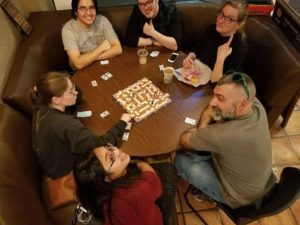
Game night demos with Wade, photo by Kyndall
Bringing people together is something the gaming community is experiencing in big ways in recent years as people are seeking ways to spend time interacting, and gaming seems to be just part of what is bringing people together. As long-time Bankstons employee and my friend Jamie Cooley said recently, people who love playing games of all types and many who had played years ago are “coming out of the closet AND going in to their closets” to drag out sets of Magic the Gathering and Pokémon games, board games, and video games to play with friends and family. There’s a noticeable movement to spend more face to face time in the age of FaceTime.
The thing about “geek culture” is that it was once seen as limited to a few. And those few weren’t always understood or loved by the rest. But in recent years that has changed. ComicCons are more mainstream, “geek” has risen from a put-down to a badge of honor, and the characters, teams, and sub-cultures people love have become a way to strike up a conversation with new people or safely bond with those we already know and love.
2016 was noted for divisiveness, and there’s something beautiful about watching people dive in to a role-playing game like Dungeons and Dragons and just enjoy a game and a story together. Or to watch the Central Texas Artists Collective (CTAC) folks walk around their newest display of artwork on the walls and discuss their creative process with King’s Landing guests.
I can grab a locally brewed-beer or locally roasted latte, then head back to the back of the building where a family enjoys pinball and arcade games together and a few folks debate which of the retro video game systems they love the most and why. My husband can again admire the mounted Hylian Shield and Master Sword that he really, really likes. (That’s from the fandom of Zelda, if you, like me, didn’t know.)
I’ve never dropped by and not had to navigate around smaller groups of patrons intently enjoying a game or conversation. But even though I’m fairly new to all of this, there’s an air of welcome and openness.
From King’s Landing you can easily walk over to Bankston’s Sports Memorabilia, Comics and Collectibles and catch a conversation about sports teams of old, check out that autographed picture of the famous punch thrown by Nolan Ryan, re-hash Baylor/ home team sports, or watch a parent and child head towards the carefully-maintained comic book wall to catch up on the latest story line.
Events. Events. Events!
In either location, get the scoop from employees about the many upcoming events. The crew travels to schools and ComicCons, and locally hosts community fundraiser events, book signings, artist meet and greets, cosplay volunteers, meet ups after movie releases, and the ever-growing Free Comic Book Day celebration every May. There are LGBTQ groups who meet, ladies who lunch and gather for fierce Mahjong play, groups who paint miniature game pieces, artists who draw together, community gatherings, private events, and on and on. Whew! Good thing there’s social media to help spread the word on all the things. (Check out the Epic Valentine’s Day Event this weekend!)
Family Business
Talking to Brent Bankston will quickly get you to the topics of community and family. Brent’s children and many other members of his family work here when they can. The catering business his wife Lee started in their home kitchen has taken new life in Butter my Biscuit, the delicious cafe part of the multi-faceted business that draws people to the shop on Valley Mills every weekend with scratch-made biscuits crafted into savory entrees, sandwiches, snacks and sweet treats. This business deeply cares and seeks to intentionally build a tolerant and positive place that serves our community.
Join the Fun!
Whether you’re looking to let your geek flag fly, are curious, hungry, bored, new in town, looking to reminisce, connect with some friends and family or what the heck ever, I encourage you to check this place out. If we’re there, my husband is the guy with the Batman tattoos who speaks way more geek than me. But all are welcome here, even a muggle like me.
 Rebecca Melton Mercer moved to Waco (on purpose) from Houston in 2007 and claims Waco as her adopted home town. Although the “job” she’s most proud of is Mom to two smart kids, nowadays she also spends a lot of time teaching English at LaVega High School, and runs a small business as a social media consultant that gets her out in the community and is as much fun as it is work. Rebecca has been active in building community through her work with Social Cents, her social media consultancy that serves small businesses and non-profits, with The City Review, a local alternative and entertainment newspaper, teaching in local private and public schools, and volunteering with non-profits that serve the Waco area. Rebecca, along with her husband Jeremy Mercer and the two awesome kids previously referred to, enjoy supporting the creative and positive things that Waco has to offer.
Rebecca Melton Mercer moved to Waco (on purpose) from Houston in 2007 and claims Waco as her adopted home town. Although the “job” she’s most proud of is Mom to two smart kids, nowadays she also spends a lot of time teaching English at LaVega High School, and runs a small business as a social media consultant that gets her out in the community and is as much fun as it is work. Rebecca has been active in building community through her work with Social Cents, her social media consultancy that serves small businesses and non-profits, with The City Review, a local alternative and entertainment newspaper, teaching in local private and public schools, and volunteering with non-profits that serve the Waco area. Rebecca, along with her husband Jeremy Mercer and the two awesome kids previously referred to, enjoy supporting the creative and positive things that Waco has to offer.
Whether it’s playing trumpet in the “Friday Band” at MCC or playing board games at King’s Landing, One of the wonderful things about Waco is that there are lots of ways to find community here. Where do you find community in Waco? Would you be interested in writing about it? If so, let us know. Email [email protected] if you have an idea for a post. You could be seeing your own picture on this page!
(During December we will be reprising some of “2017’s greatest hits” from the Act Locally Waco blog. I couldn’t possibly pick my favorites – so I used the simple (cop out?) approach of pulling up the 10 blog posts that got the most “opens” according to our Google Analytics. It is an intriguing collection that gives at least a little insight into the interests and concerns of Act Locally Waco readers. I hope this “Top 10” idea inspires you to go back and re-read your personal favorites. There have been so many terrific ones… If you would like to see the Top 10 according to Google Analytics, here’s the link: 2017 Greatest Hits. Merry Christmas! — ABT)
By Leslie King
On December 13, I was struck by a letter to the editor from David Trayler that appeared in the Waco Trib. In it he referred to Rev. Kyndall Rothaus of Lake Shore Baptist Church as a “lady pastor.”
In the letter, “Lady” as adjective implies something less acceptable than a real pastor. The implication, intended or not, is that a real representative for God is not a lady or a woman but a man. Such a notion is a theological shortcut that is damaging to our shared life, as well as God’s integrity and freedom.
Shortcuts, whether geographic or mental, benefit us by getting us quickly from point A to point B. That’s the benefit. Shortcuts also mean there is a lot of the proverbial landscape that we will not experience. When we understand God only as man or father, there is a lot about God that we do not see and we do not understand.
God as masculine is set early for many of us in the Christian tradition. Images of Jesus and disciples are pillars in the God-as-male argument.
My own theological shortcut on masculinity and God has been firmly in place since early childhood. My dad, himself a pastor, played his part in this shortcut. He was and is an encourager and my mentor, calling me to challenges and celebrating successes. So you can see, even as I was on track for ministry, my primary understanding of God was male.
The mental and spiritual shortcut was a well-worn path. It was not until the day of my ordination, when my father helped me slip into my robe in front of a dressing mirror that I saw it most clearly. Looking into the mirror, I saw Dad and I saw myself. I saw a pastor and a lady pastor. That was 21 years ago and I am still reconsidering the shortcut entrenched in my brain.
For me, this has been something like taking the long way to reflect on my experiences and to try to understand the experiences of others. The long way still reminds me of Robert Frost’s poem “The Road Less Traveled”. Unlike the poem, going the long way has not been lonely but rather a more densely populated route than the shortcut. I have found others who are navigating around their mental and spiritual shortcuts.
The long way is full of questions. “Does God intend to sort people into winners and losers?” “Are we encouraging right understanding of God when religion issues “loving ultimatums” on what is acceptable and what is not acceptable?” These questioning people are not interested in relativism or an “anything goes” culture. Rather, they seem to be examining their shortcuts. They seem genuinely curious to re-examine the constricting truths told to them about God versus their experience of God.
We are, many of us, navigating around insufferable shortcuts. We go the long way through scripture, tradition and experience realizing that gender has never been the only way we understood ourselves. It is not the only way we understand God.
For my part, I remember the stories of scripture wherein Jesus went the long way around the organized religion of his day. These texts remember his wandering through wilderness, township, home and hearth. “Your faith has made you well,” he spoke to some of the most unlikely candidates on a cultural scale of promise. There is something of them in all of us.
Such encouraging words are needed today. There is a longing to navigate with integrity around the shortcut and live into deeper and broader truths. Some say that the Spirit of Christ still takes the long way round the roughly hewn exclusions within his own church.
 This week’s Act Locally Waco blog post is by Rev. Dr. Leslie Ann King of First Presbyterian Church, Waco.
This week’s Act Locally Waco blog post is by Rev. Dr. Leslie Ann King of First Presbyterian Church, Waco.
The Act Locally Waco blog publishes posts with a connection to these aspirations for Waco. If you are interested in writing for the Act Locally Waco Blog, please email [email protected] for more information.
